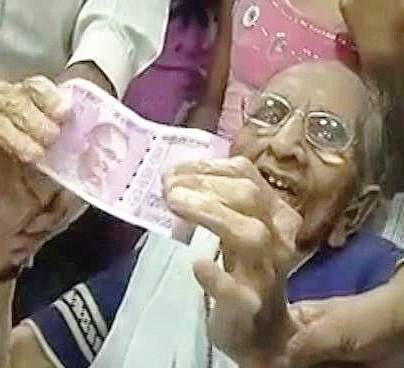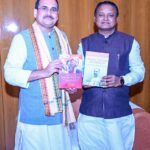Spoilt children of politics rattled by PM Modi’s devotion for nation
- By : Anirban Ganguly
- Category : Articles

In a political culture that is obsessed with dynastism and which has, over the years, developed a deeply entrenched habit of ensuring that political power and position benefit members of the leaders’ families, Prime Minister Narendra Modi’s approach towards his immediate and extended family members stands apart.
A well-researched story that appeared on the last days of December 2016 told us how members of Modi’s family have continued with their lives—silently, with dignity and humility seeking no favours and never ever displaying the power of being connected. In a polity where even a court summon makes leaders remind people of who they are or whose they are—one needs to recall Sonia Gandhi’s reminder in the Parliament lobby that she was “Indiraji’s bahu (daughter-in-law), in response to a summon on the National Herald case!
Indeed Modi’s attitude stands apart, inspires and instils hope in people who have been used to being exploited in the name of political families and whose mandate has at times and in some regions almost always been used to enrich members of a particular family.
In such a climate, in such a political culture, because Modi stands apart and because he resolutely refuses to toe the line, he faces the wrath of those who have thrived only because they had a certain family name attached to their intellect and who have always attempted to push family interests above national interest.
In fact, in the name of family, a number of these dynastic political conglomerates have perpetrated the most ravaging scams in the country. The governance of the Congress, Samajwadi Party (SP), DMK and even BSP, with all its professed service for the marginalised, is a long record of this tenuous commitment to the people and to the ideals of our freedom.
Congress V-P Rahul Gandhi’s hatred for Modi, his intemperate outbursts and frothy irrationality against all that the PM is doing and stands for, is deep-rooted in that insecurity—that essentially stems from the realisation that Modi is not like others and will not be pushed into a stereotype mould that is “like us only”, or as someone said, “will not be domesticated”.
Rahul’s finger-pointing at Modi is rich, especially coming from a political family, which despite all its contribution to our struggle for freedom has essentially and always promoted dynastism—starting from the days of Motilal Nehru who insisted before Gandhi that Jawahar be given the reigns of Congress after him, to Nehru promoting daughter Indira, to Indira promoting Sanjay and Rajiv, to Sonia pushing Rahul into the trade knowing well that he is starkly unfit and intellectually unqualified for the post and its demands.
The Congress first family has always thought of the family first and then identified the country with the family—an essentially feudalistic approach that finds no approval in the injunctions on governance that have been articulated by our sages, statesmen and thinkers of the past.
While the Congress first family’s approach is family first—one sees this in a number of other political dynasties; the DMK dynasty, for example, is faction- and strife-ridden for quite a while now; the SP family, currently feuding—for Narendra Modi, the nation and its people (as his family) is first.
When Modi speaks of being concerned with the welfare of 125 crore Indians, it is a conviction or faith that he has actually lived and internalised over the years of his extensive travels in grassroots India. It is not a mere mental or intellectual construct, it is an identification.
Spoilt children of Indian politics, peddling self-serving visions, will scarcely comprehend that sense of oneness.

















